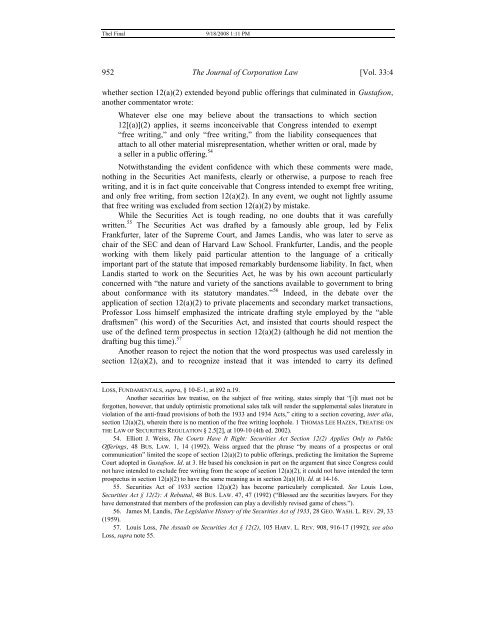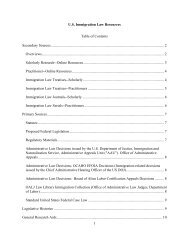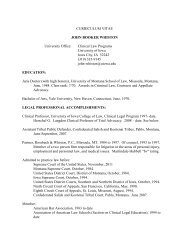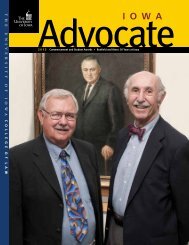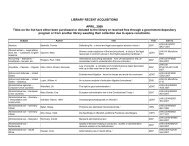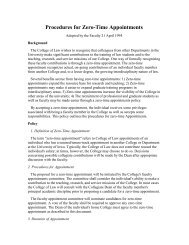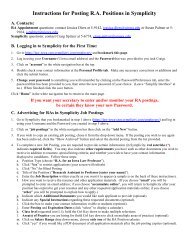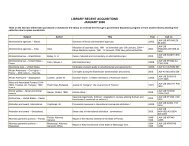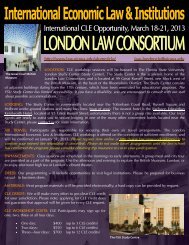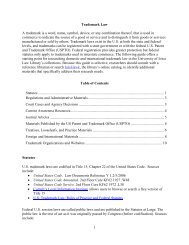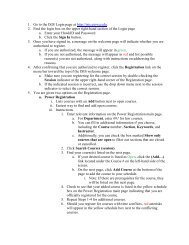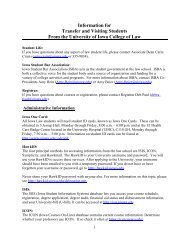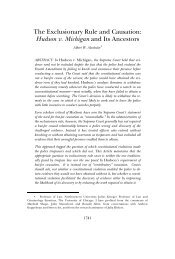Free Writing Steve Thel*
Free Writing Steve Thel*
Free Writing Steve Thel*
- No tags were found...
You also want an ePaper? Increase the reach of your titles
YUMPU automatically turns print PDFs into web optimized ePapers that Google loves.
Thel Final9/18/2008 1:11 PM952 The Journal of Corporation Law [Vol. 33:4whether section 12(a)(2) extended beyond public offerings that culminated in Gustafson,another commentator wrote:Whatever else one may believe about the transactions to which section12[(a)](2) applies, it seems inconceivable that Congress intended to exempt“free writing,” and only “free writing,” from the liability consequences thatattach to all other material misrepresentation, whether written or oral, made bya seller in a public offering. 54Notwithstanding the evident confidence with which these comments were made,nothing in the Securities Act manifests, clearly or otherwise, a purpose to reach freewriting, and it is in fact quite conceivable that Congress intended to exempt free writing,and only free writing, from section 12(a)(2). In any event, we ought not lightly assumethat free writing was excluded from section 12(a)(2) by mistake.While the Securities Act is tough reading, no one doubts that it was carefullywritten. 55 The Securities Act was drafted by a famously able group, led by FelixFrankfurter, later of the Supreme Court, and James Landis, who was later to serve aschair of the SEC and dean of Harvard Law School. Frankfurter, Landis, and the peopleworking with them likely paid particular attention to the language of a criticallyimportant part of the statute that imposed remarkably burdensome liability. In fact, whenLandis started to work on the Securities Act, he was by his own account particularlyconcerned with “the nature and variety of the sanctions available to government to bringabout conformance with its statutory mandates.” 56 Indeed, in the debate over theapplication of section 12(a)(2) to private placements and secondary market transactions,Professor Loss himself emphasized the intricate drafting style employed by the “abledraftsmen” (his word) of the Securities Act, and insisted that courts should respect theuse of the defined term prospectus in section 12(a)(2) (although he did not mention thedrafting bug this time). 57Another reason to reject the notion that the word prospectus was used carelessly insection 12(a)(2), and to recognize instead that it was intended to carry its definedLOSS, FUNDAMENTALS, supra, § 10-E-1, at 892 n.19.Another securities law treatise, on the subject of free writing, states simply that “[i]t must not beforgotten, however, that unduly optimistic promotional sales talk will render the supplemental sales literature inviolation of the anti-fraud provisions of both the 1933 and 1934 Acts,” citing to a section covering, inter alia,section 12(a)(2), wherein there is no mention of the free writing loophole. 1 THOMAS LEE HAZEN, TREATISE ONTHE LAW OF SECURITIES REGULATION § 2.5[2], at 109-10 (4th ed. 2002).54. Elliott J. Weiss, The Courts Have It Right: Securities Act Section 12(2) Applies Only to PublicOfferings, 48 BUS. LAW. 1, 14 (1992). Weiss argued that the phrase “by means of a prospectus or oralcommunication” limited the scope of section 12(a)(2) to public offerings, predicting the limitation the SupremeCourt adopted in Gustafson. Id. at 3. He based his conclusion in part on the argument that since Congress couldnot have intended to exclude free writing from the scope of section 12(a)(2), it could not have intended the termprospectus in section 12(a)(2) to have the same meaning as in section 2(a)(10). Id. at 14-16.55. Securities Act of 1933 section 12(a)(2) has become particularly complicated. See Louis Loss,Securities Act § 12(2): A Rebuttal, 48 BUS. LAW. 47, 47 (1992) (“Blessed are the securities lawyers. For theyhave demonstrated that members of the profession can play a devilishly revised game of chess.”).56. James M. Landis, The Legislative History of the Securities Act of 1933, 28 GEO. WASH. L. REV. 29, 33(1959).57. Louis Loss, The Assault on Securities Act § 12(2), 105 HARV. L. REV. 908, 916-17 (1992); see alsoLoss, supra note 55.


